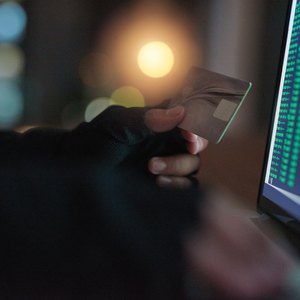
If you spot unauthorized charges on your debit card or credit card, you should report it to your bank immediately. You can also report it to the police, particularly if you know or suspect who is responsible and want them to investigate and potentially charge someone. If you need or want a police report for legal purposes, you can also consider reporting to the Federal Trade Commission, which will issue you a report that usually is sufficient.
Tips
If someone uses your debit card without your authorization, you can report the incident to your local police for an investigation so that charges can be pressed if necessary. In addition to also letting your bank know about the fraud, you can report the incident to the FTC.
Reporting to Your Bank
If you see what appear to be fraudulent charges on your debit card statement, your card gets stolen or you're concerned someone has the card, you should contact your bank right away. If you report your card stolen before any fraud takes place, you generally won't be liable for unauthorized charges. Under federal law, if you do so within two business days of fraud taking place, you can be held liable for up to $50 in fraudulent charges. If you do so within 60 days of getting sent the first statement with evidence of fraud, you can be liable for up to $500. Beyond that, you may be on the hook for any unauthorized spending on your account.
Some debit cards have their own policies in which you may not be held liable for any unauthorized charges, provided you notify the bank promptly. No matter the policy, it's best to contact the bank as soon as you can so it can stop any additional fraudulent charges, begin its investigation and issue you a new debit card. It's generally a good idea to report unauthorized charges to your bank whether or not you intend to contact law enforcement.
Reporting to the Police
If you wish, you can also report debit card fraud to your local police department. Depending on local policies, the department may ask you to come to a police station or may send an officer to meet with you. Either way, you should try to have your identification with you, as well as any evidence you might have of the fraud, such as printouts of online transaction reports or paper bank statements.
Depending on the amount stolen, your knowledge of who made the unauthorized charges and other factors, the police may or may not prioritize investigating the crime. But you can always get a police report, which may be useful documentation for the future.
Reporting to the FTC
You can also report fraudulent charges to the FTC instead of or in addition to reporting to your local police. The FTC will issue you a report that can be used in some cases if you need evidence you reported the theft to authorities. The agency suggests that you still contact the police if you know the perpetrator, have other evidence that could help investigate the crime, believe someone is impersonating you or need a local police report.
References
- FTC: Most ID Theft Victims Don't Need a Police Report
- FTC: Lost or Stolen Credit, ATM, and Debit Cards
- Visa USA: Zero Liability
- Consumer Financial Protection Bureau. "Four Steps You Can Take If You Think Your Credit or Debit Card Data Was Hacked." Accessed Feb. 11, 2020.
- Consumer Financial Protection Bureau. "How Do I Get My Money Back After I Discovered an Unauthorized Transaction or Money Missing From My Bank Account?" Accessed Feb. 11, 2020.
- Experian. "How to Prevent Debit Card Fraud." Accessed Feb. 11, 2020.
Writer Bio
Steven Melendez is an independent journalist with a background in technology and business. He has written for a variety of business publications including Fast Company, the Wall Street Journal, Innovation Leader and Ad Age. He was awarded the Knight Foundation scholarship to Northwestern University's Medill School of Journalism.
